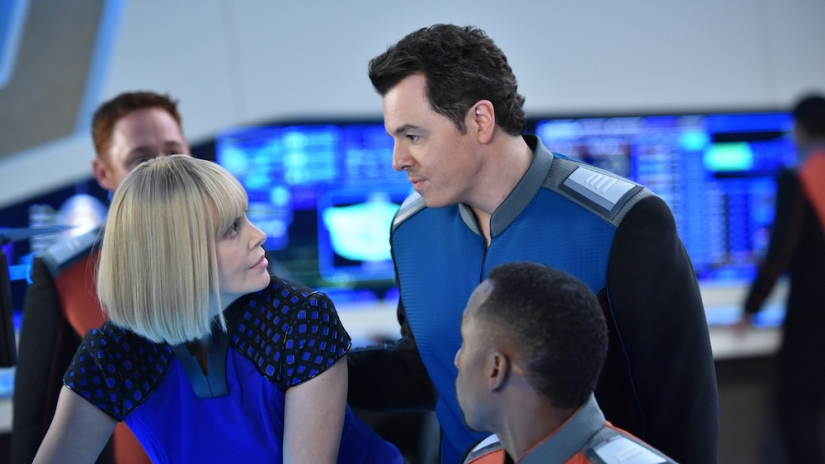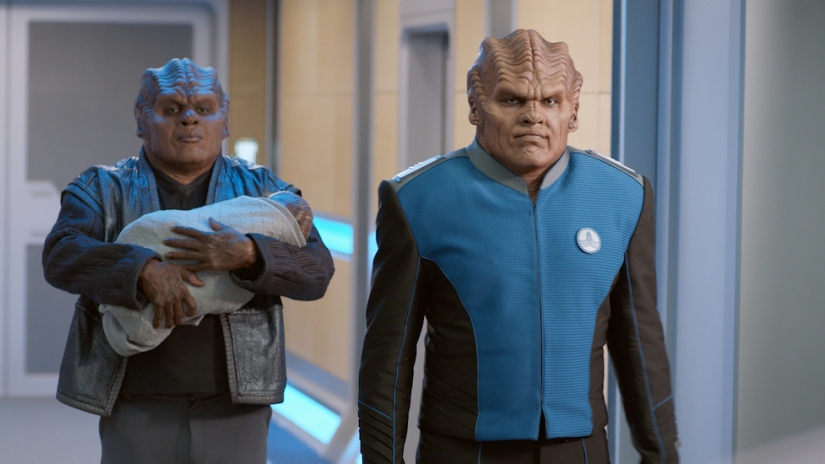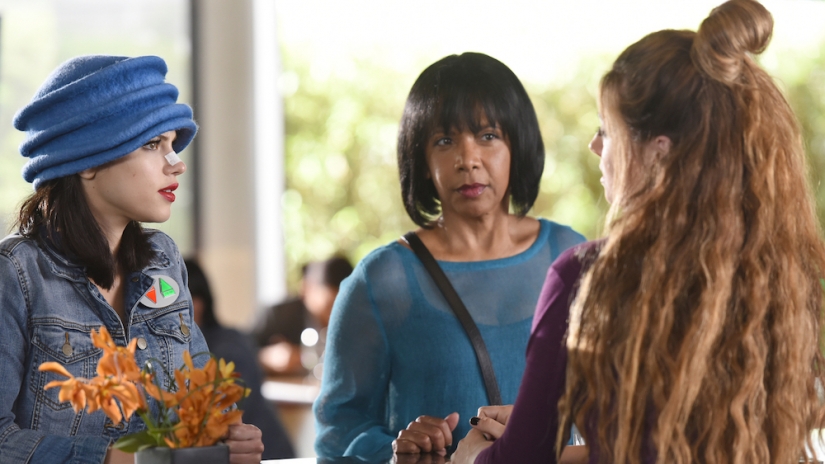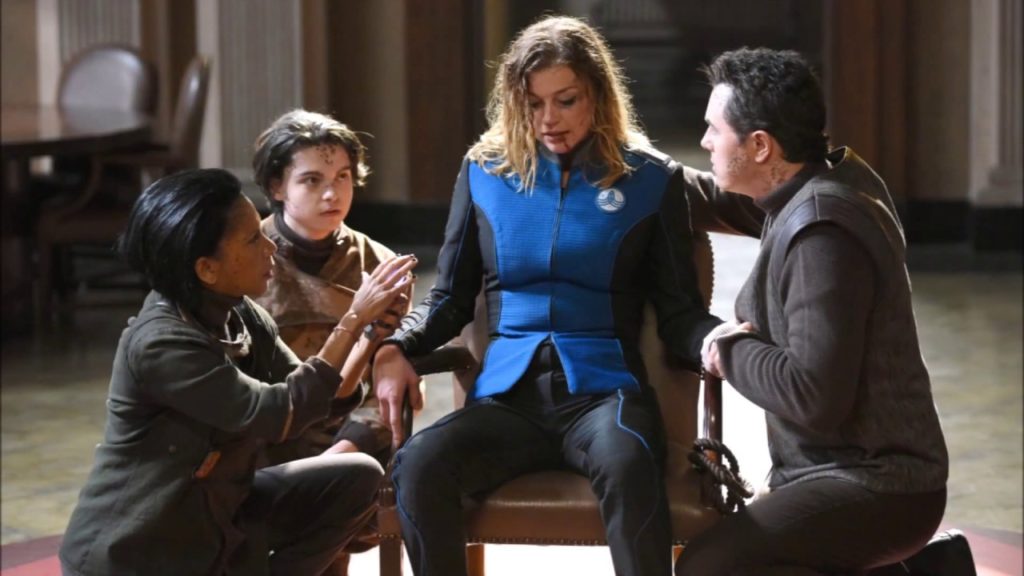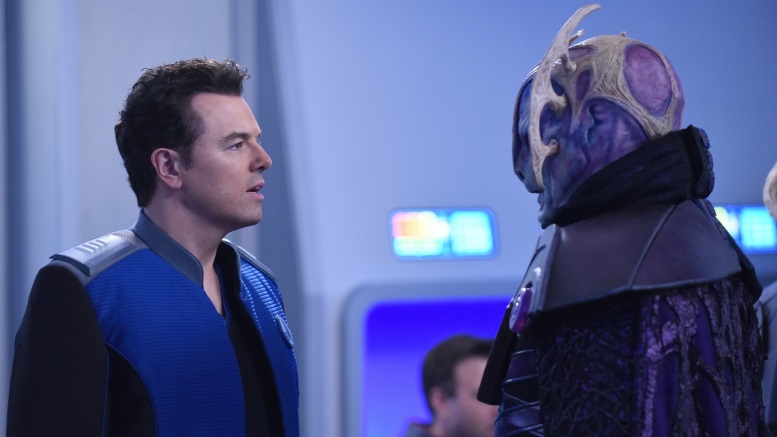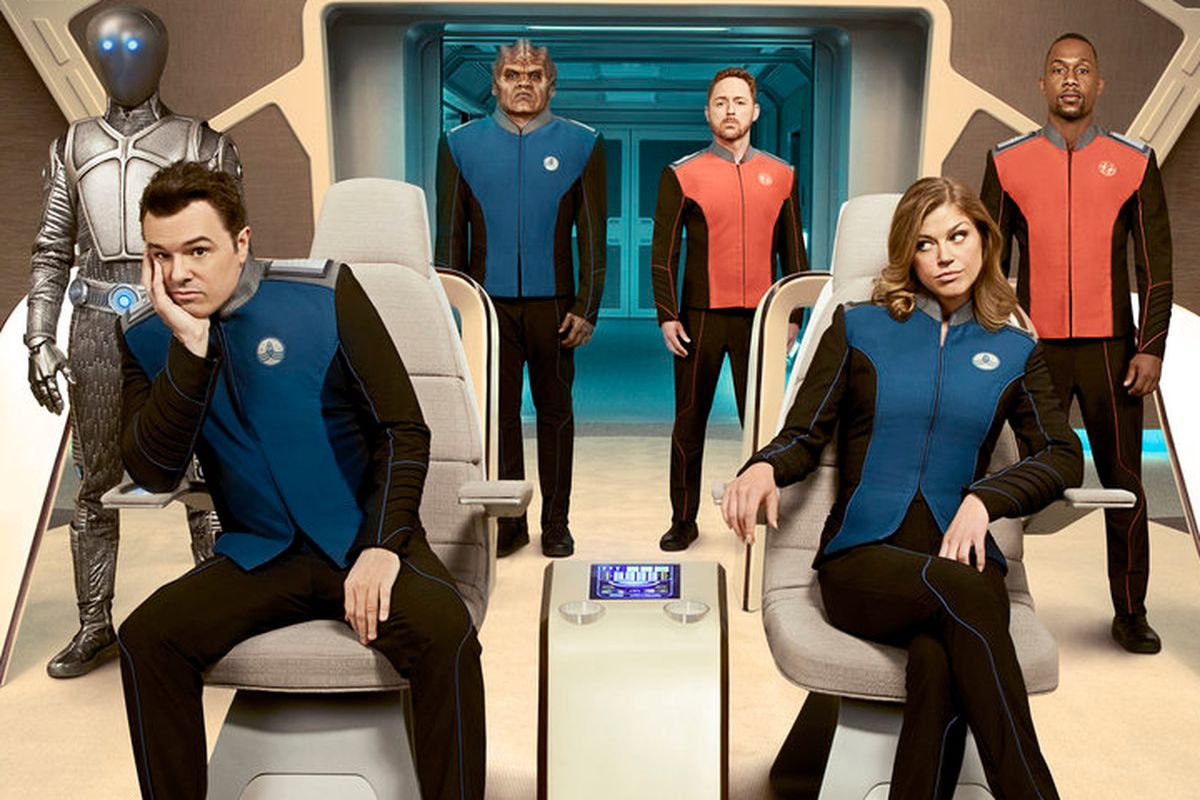
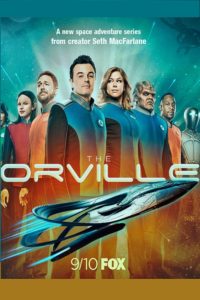 The Orville is Seth MacFarlane’s new show on Fox. It details the adventures of Captain Ed Mercer, played by Seth, Commander Kelly Grayson, Captain Mercer’s ex-wife, played by Adrianne Palicki, and the crew of the starship Orville.
The Orville is Seth MacFarlane’s new show on Fox. It details the adventures of Captain Ed Mercer, played by Seth, Commander Kelly Grayson, Captain Mercer’s ex-wife, played by Adrianne Palicki, and the crew of the starship Orville.
While the show definitely has direct influences from the Star Trek franchise, the beauty of what MacFarlane and company have been able to accomplish comes with the twists they’ve been able to make with the familiar tropes that have already been established. With that said, the following are five episodes to check out from the first season that stand out.
Word of warning, there will be plot points of the episodes in question discussed so if you want to avoid spoilers, watch the show first.
PriaThe best episode of the season to date guest stars Charlize Theron as Pria Lavesque, a time traveling artifact dealer, who finds a way to kidnap the crew of The Orville and bring them to the 29th Century via a stable wormhole. The crew of The Orville find a way to escape, destroying the wormhole, sending Pria back to her timeline. The episode did a great job of building up the tension of the kidnapping while not exactly making Pria out to be a villain. She’s portrayed as a no nonsense person that believes the ends justifies the means. The subplot of Ed and Pria having a romance was used to good effect to heighten the tensions between Ed and Kelly. And watch out for a nice little subplot involving the robot Isaac and Lt. Malloy. Malloy spends the episode trying to teach Isaac about humor and Isaac has a unique way of trying out a practical joke.
|
About A GirlThis episode revolves around Lt. Commander Bortus and his mate Klyden. They’re both Moclans, an alien race that only has males. In the previous episode, Bortus had laid an egg. The end of the episode revealed that Bortus and Klyden had a girl, which was news the pair did not want to hear. They ask the ships doctor, Doctor Claire Finn, to perform a procedure that Moclans perform on the rare baby that is born female which would turn the child male. Bortus gets cold feet, which prompts Klyden to contact their home world. A court battle ensues which ultimately results in the procedure happening. This episode does a wonderful exploring gender identity without making anyone in the story look like a villain in the process. While the residents of Moclus are ultimately wrong in their beliefs, they’re not made to look like bad guys for behaving like they do, just people who haven’t considered another point of view.
|
Majority RuleThe crew of The Orville are dispatched to a planet in order to investigate the disappearance of two scientists. They discover a world similar to 21st Century Earth where the rule of law is judged similar to social networking likes or dislikes. If someone gets enough dislikes, they’re put to death. Lt. LaMarr is captured on video after the search party from The Orville lands on the planet doing a suggestive dance with a statue which leads to his arrest. The episode is an interesting look at the effects social media can have on a society. While there are certainly people who deserve to have bad things happen to them, the mob mentality of social media can lead people down paths that ultimately make their actions worse than the people they’re trying to condemn. The beauty of the episode to me lies in the fact you’re not beaten over the head with the fact that mob mentality in social media is a bad thing, you’re forced to sit back and think. Gene Roddenberry did that to perfection in Star Trek. It’s nice to see topics in society like this can be discussed in such a way as to make you think without the producers preaching to you.
|
If The Stars Should AppearThe crew of The Orville encounter a massive space ship adrift in space. Realizing the ship is in the direct path of a star, a search party boards the ship and discovers that not only is it an operational biosphere, the ship is inhabited by over three million people who aren’t aware they’re on a space ship. The crew find that certain leaders in power want to squelch any hint that the world as they know it is a facade. Commander Grayson is taken prisoner and tortured throughout the episode. The episode ends as the crew of The Orville discover the bridge of the ship and play a recording from the original captain of the ship Dorahl, played by Liam Neeson. The idea behind the episode, of people finding out the world they live in is not what it seems, is executed well. Adrianne Palicki shines in the episode as Commander Grayson, bringing on the verbal quips like a samurai swinging a sword.
|
Cupid’s DaggerThe Orville is sent to help mediate a dispute among two warring species about control of a planet. A forensic archaeologist is sent by The Union, The Orville’s version of Starfleet, to help settle who has claim to the planet. The forensic archaeologist in question is the man who helped cause the divorce of Kelly and Ed, Darulio. We discover that Darulio’s species excrete a pheromone once a year which makes anyone that touches him sexually attracted to him. The beauty of the episode comes with the realization of Ed and Kelly that her cheating on him more than a year before was most likely due to the pheromone and not from any intentional infidelity. If I had to compare it to a Star Trek: The Next Generation episode, it would be The Naked Now, if The Naked Now were written for laughs. The episode is worth a watch for the opening gag of Bortus almost singing My Heart Will Go On.
|
Verdict:
The Orville is a must watch show. Does that mean its perfect? Not by a long shot. My main point of contention is the over reliance upon 20th Century references for their jokes. When they use them in the example I used of Bortus attempting to sing My Heart Will Go On, I have no issues as that scene was hilarious. Yet showing clips of Seinfeld and The Sound of Music were gratuitous and not necessary. While the producers would probably argue that these references are on film and there’s a good chance they will be around in some form 400 years from now, I would argue that even if they were around, I don’t know of too many entertainment references from the 1600’s that we actively continue to enjoy en masse. Why would things change 400 years from now?
Yet that’s nitpicking. The Orville is a great show that embodies the best of what the show it emulates, Star Trek, brought to the screen. It gives audiences hope that not only will we still be around in 400 years, things will actually be better for the human race. With everything going on in the news today, I see nothing wrong with a show that embraces the best of human nature.

